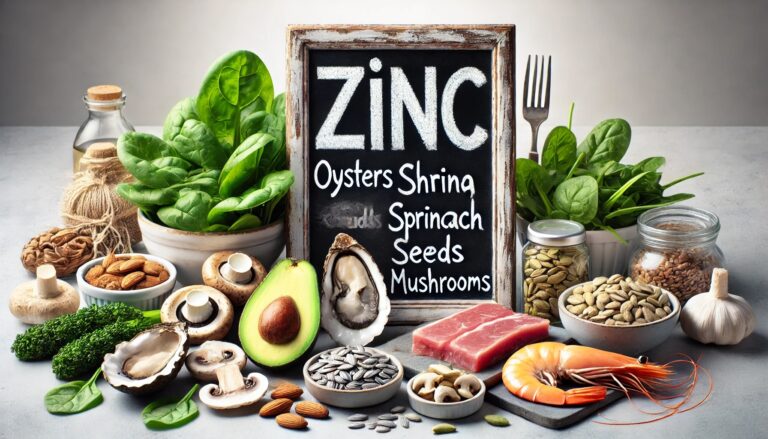In recent years, turmeric has gained immense popularity as a natural remedy for combating inflammation, driven by growing interest in health and natural therapies. This golden spice, commonly used in cooking, is now celebrated for its remarkable health benefits, particularly its ability to fight inflammation. Backed by both traditional wisdom and modern science, turmeric is becoming a staple in the pursuit of well-being. This article delves into the role of turmeric in managing inflammation, the science behind curcumin, and practical ways to incorporate turmeric into your lifestyle.
What is Turmeric?
Turmeric is a root belonging to the ginger family, primarily grown in South Asia and Southeast Asia. Its vibrant golden hue comes from curcumin, the active compound responsible for its numerous health benefits.
Used for thousands of years in traditional Chinese medicine and Ayurveda, turmeric has been a remedy for conditions like inflammation, digestive issues, and skin problems. Today, its potent anti-inflammatory and antioxidant properties make it a focus of modern medical research.
What is Inflammation, and Why Should We Combat It?
Inflammation is the body’s natural immune response to infections, injuries, or irritants. While acute inflammation helps repair tissues and fend off pathogens, chronic inflammation is a prolonged state that can lead to various health issues, including:
• Cardiovascular diseases
• Diabetes
• Arthritis
• Neurodegenerative disorders (e.g., Alzheimer’s disease)
• Cancer
Chronic inflammation can be triggered by long-term stress, poor diet, environmental toxins, and lifestyle factors. Managing inflammation through natural remedies like turmeric can significantly reduce the risk of these chronic conditions.
The Science Behind Turmeric’s Anti-Inflammatory Properties
Curcumin, the primary active compound in turmeric, has been extensively studied for its powerful anti-inflammatory properties. Here’s how turmeric helps combat inflammation:
Inhibits the Production of Inflammatory Molecules
Curcumin blocks the activation of NF-κB, a molecule that regulates genes responsible for inflammation. This reduces the production of inflammatory cytokines such as TNF-α and IL-6, which play a significant role in chronic inflammation.
Antioxidant Effects
Inflammation often goes hand-in-hand with oxidative stress. Curcumin is a potent antioxidant that neutralizes free radicals and reduces oxidative damage, alleviating inflammation.
Protects Cellular Health
Curcumin boosts intracellular glutathione levels (a natural antioxidant), aiding in cell repair and protecting against further damage.
Reduces Activity of Inflammatory Enzymes
Curcumin lowers the activity of enzymes like COX-2 and LOX, both of which are critical in the inflammatory process.
Health Benefits of Turmeric
In addition to its anti-inflammatory properties, turmeric offers a wide range of health benefits:
Relieves Arthritis Symptoms
Curcumin helps reduce joint pain and stiffness caused by arthritis. Studies have shown that it is as effective as traditional non-steroidal anti-inflammatory drugs (NSAIDs) with fewer side effects.
Supports Cardiovascular Health
Turmeric lowers LDL (bad) cholesterol levels and prevents arterial plaque buildup. Its anti-inflammatory properties further protect the cardiovascular system from damage.
Improves Digestive Health
Turmeric aids digestion by stimulating bile production, which helps break down fats. It also reduces gut inflammation and alleviates symptoms of irritable bowel syndrome (IBS).
Boosts Immunity
Turmeric’s antioxidant and anti-inflammatory properties enhance the immune system, helping the body fight off infections and diseases.
Protects Brain Health
Curcumin can cross the blood-brain barrier and reduce neuroinflammation, potentially lowering the risk of Alzheimer’s disease and other neurodegenerative disorders.
How to Incorporate Turmeric into Your Daily Life
Add Turmeric to Your Diet
Turmeric is a versatile spice that can be used in various dishes, such as:
• Adding turmeric powder to curries, soups, and stews.
• Mixing turmeric with black pepper to enhance absorption.
• Making “golden milk” by blending turmeric with warm milk and spices like cinnamon.
Take Turmeric Supplements
For those seeking higher doses of curcumin, turmeric supplements are a convenient option. Look for products containing black pepper extract (piperine) to significantly improve curcumin absorption.
Use Turmeric Topically
Turmeric can be applied externally in the form of masks or creams to alleviate skin inflammation and treat conditions like acne and eczema.
Things to Keep in Mind When Using Turmeric
Moderate Your Intake
Although turmeric is highly beneficial, excessive consumption can cause gastrointestinal discomfort or other side effects. The recommended daily intake of curcumin is typically 500–2000 mg. Consult a healthcare professional for personalized advice.
Pair with Black Pepper
Curcumin’s bioavailability is low on its own, but combining it with piperine (found in black pepper) enhances absorption significantly.
Special Precautions for Certain Groups
Pregnant or breastfeeding women and individuals with gallbladder issues should consult a doctor before incorporating turmeric into their diet.
Long-Term Benefits of Using Turmeric
Regular use of turmeric can yield numerous long-term health benefits, such as:
• Reduced risk of chronic diseases
• Relief from chronic pain
• Enhanced immune system function
• Stronger antioxidant defenses
• Improved cardiovascular and brain health
Conclusion
Turmeric stands out as a powerful natural remedy for inflammation, blending ancient medicinal wisdom with modern scientific validation. By incorporating turmeric into your diet, using supplements, or applying it topically, you can harness its anti-inflammatory and overall health benefits.
Whether you’re seeking to manage chronic conditions or improve general well-being, turmeric offers a safe and effective way to support your health. We hope this article provides practical guidance to help you maximize the benefits of turmeric in your daily life.




















